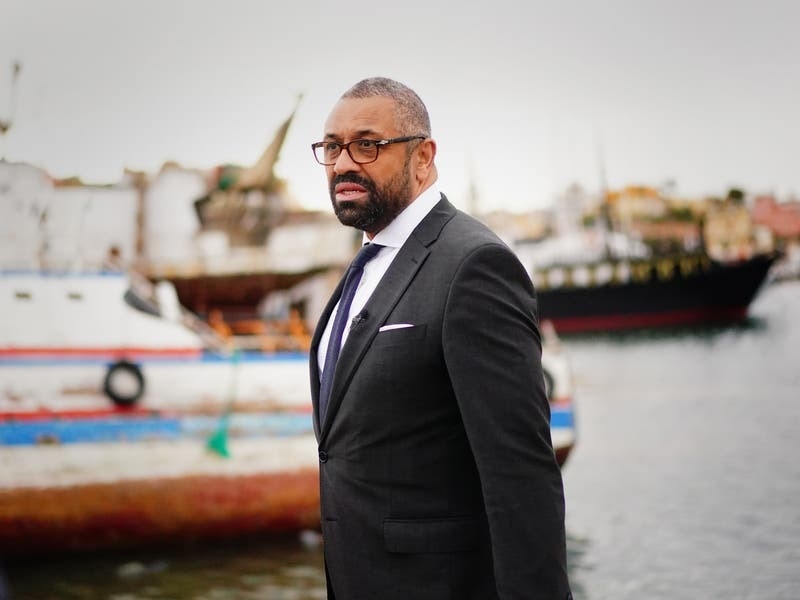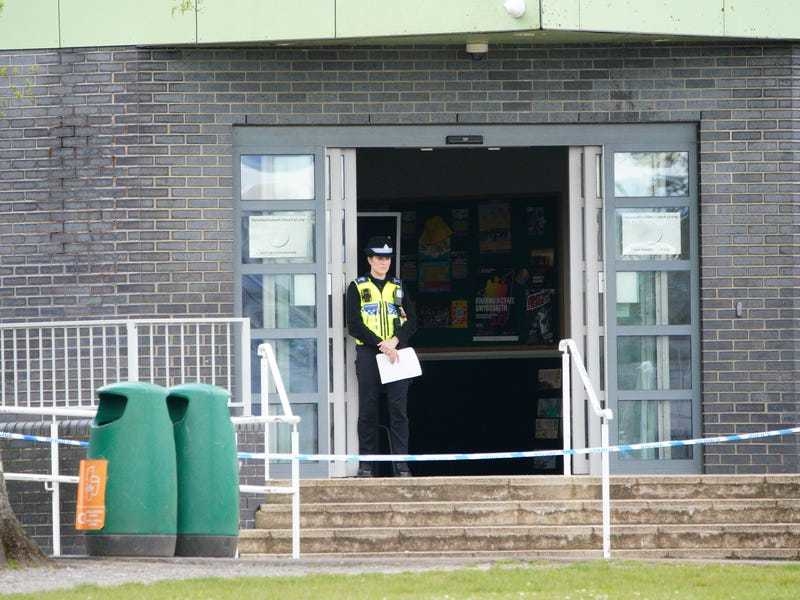Germany has begun winding down its three remaining nuclear power plants as part of a long-planned transition toward renewable energy, drawing cheers from environmentalists who campaigned for the move.
The shutdown of the Emsland, Neckarwestheim II and Isar II reactors, which was agreed upon more than a decade ago, is being closely watched abroad.
Other industrialised countries, such as the UK, US, Japan, China and France, are counting on nuclear energy to replace planet-warming fossil fuels.
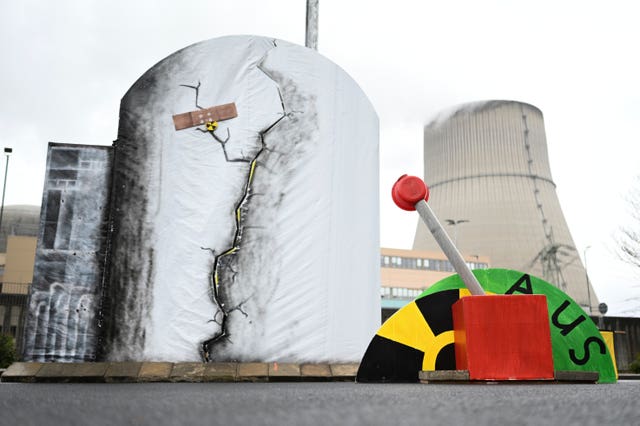
Decades of anti-nuclear protests in Germany, stoked by disasters at Three Mile Island, Chernobyl and Fukushima, put pressure on successive governments to end the use of a technology that critics argue is unsafe and unsustainable.
Environmental groups planned to mark the day with celebrations outside the three reactors and rallies
in major cities, including Berlin.
Small, closed-doors ceremonies inside the plants were also organised.

As energy prices spiked last year due to the war in Ukraine, some members of German Chancellor Olaf Scholz’s government got cold feet about closing the nuclear plants as planned on December 31 2022.
In a compromise, Mr Scholz agreed to a one-time extension of the deadline, but insisted that the final countdown would happen on April 15.
Bavaria’s conservative governor, Markus Soeder, who backed the original deadline set in 2011 when Chancellor Angela Merkel was Germany’s leader, this week called the shutdown “an absolute mistaken decision”.
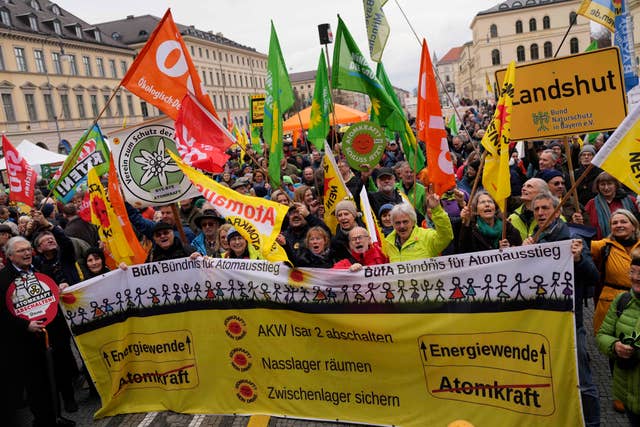
“We need every possible form of energy. Otherwise, we risk higher electricity prices and businesses moving away.”
Advocates of nuclear power worldwide have criticised the German shutdown, aware that the action by Europe’s biggest economy could deal a blow to a technology they tout as a clean and reliable alternative to fossil fuels.
The German government has acknowledged that, in the short term, the country will have to rely more heavily on polluting coal and natural gas to meet its energy needs, even as it takes steps to massively ramp up electricity production from solar and wind.
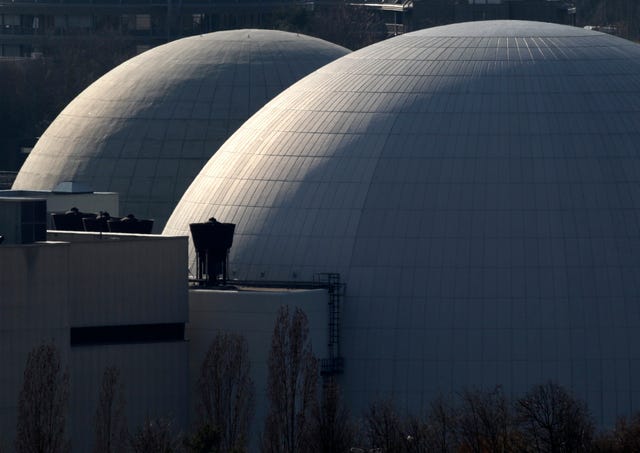
Officials such as environment minister Steffi Lemke say the idea of a nuclear renaissance is a myth, citing data showing that atomic energy’s share of global electricity production is shrinking.
At a recent news conference in Berlin, Ms Lemke noted that building new nuclear plants in Europe, such as Hinkley Point C in the UK, has faced significant delays and cost over-runs.
Funds spent on maintaining ageing reactors or building new ones would be better spent on installing cheap renewables, she argued.
Experts such as Claudia Kemfert of the German Institute for Economic Research in Berlin say the 5% share of Germany’s electricity currently coming from its remaining three reactors can be easily replaced without risking blackouts.
The north-western town of Lingen, home to the Emsland plant, plans to become a hub for hydrogen production using cheap electricity generated from North Sea wind farms, mayor Dieter Krone told The Associated Press in an interview this week.
The power plant’s operator, RWE, has made clear that it is committed to the shutdown. The company still runs some of Europe’s dirtiest coal-fired power plants.
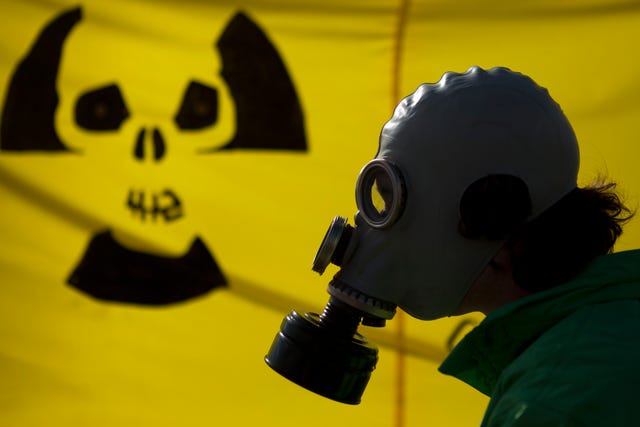
Many of Germany’s nuclear power plants will still be undergoing costly dismantling by then. The question of what to do with highly radioactive material accumulated in the 62 years since the country’s first reactor started operating remains unresolved.
Efforts to find a final home for hundreds of containers of toxic waste have faced fierce resistance from local groups and officials, including Mr Soeder, the Bavarian governor.
“Nuclear power supplied electricity for three generations, but its legacy remains dangerous for 30,000 generations,” said Ms Lemke, who also pointed to previously unconsidered risks such as the targeting of civilian atomic facilities during conflicts.
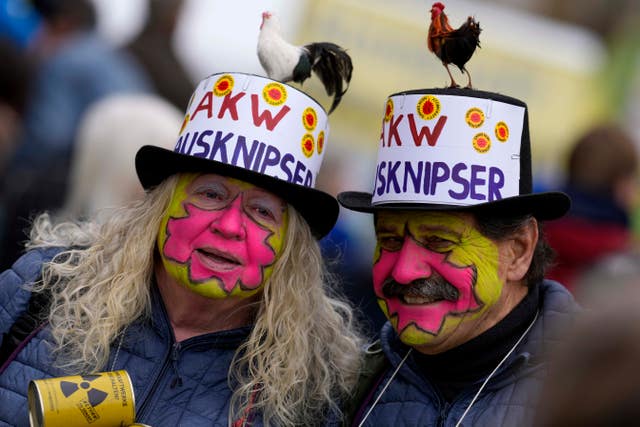
US energy secretary Jennifer Granholm has said that nuclear power will “play a critical role in America’s clean energy future”.
This week, she welcomed Japan’s decision to restart many of its reactors.
With a national debate raging again in Germany about whether the nuclear shutdown is really a good idea, the top official in charge of nuclear safety at the environment ministry, Gerrit Niehaus, was asked by a reporter to sum up in a single sentence what lessons should be learned from the country’s brief atomic era.
“You need to think things through to the end,” Mr Niehaus said.




